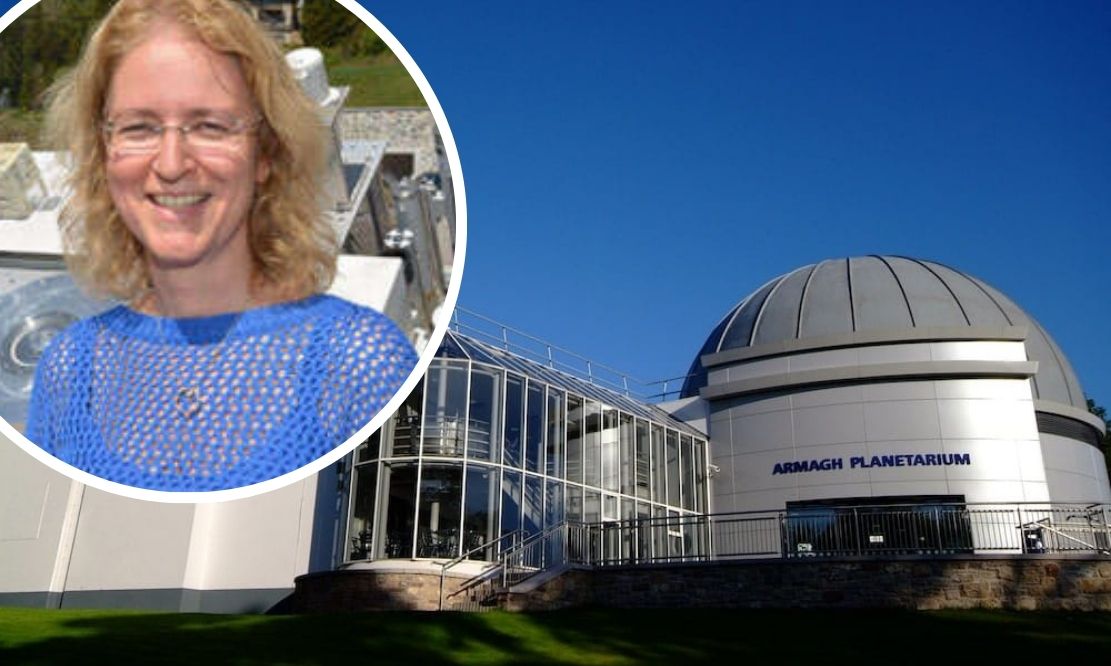
Prestigious medal and prize awarded to Armagh Observatory’s Professor Louise Harra
A member of Armagh Observatory and Planetarium’s management team has been awarded the 2023 Cecilia Payne-Gaposchkin medal and prize for her ‘numerous and outstanding achievements and contributions’ to the field.
Born in Lurgan, Professor Louise Harra received the recognition for pioneering contributions to the development of extreme ultraviolet imaging and spectroscopy instrumentation for solar space missions and its application to further our understanding of dynamic activity on the Sun.
Professor Harra is a renowned international expert in solar physics. Her career to date includes numerous outstanding achievements and contributions to the field. These include her current leadership of the Japan Aerospace Exploration Agency’s Solar-C Solar Spectral Irradiance Monitor, a novel contribution to the mission that will lead to new insights into the effects of flare related extreme ultraviolet (EUV) irradiance on the Earth’s atmosphere.
Her role on Solar-C follows directly from her previous leadership of the EUV Imaging Spectrometer (EIS) on Hinode in 2006–2019, during which time as principal investigator (PI) she led an international team to maximise the operation and scientific return from the instrument. In this role, she provided the scientific and technical support and leadership needed to enable solar scientists within and beyond the Hinode team to undertake scientific investigations with EIS while maintaining her own highly impressive research programme.
Throughout her career, she has made unique contributions to our understanding of fundamental questions around the processes that trigger explosive energy release in the solar atmosphere and drive solar wind formation. Her exceptional leadership of Hinode led to the EIS team winning the Royal Astronomical Society’s Group Achievement Award in 2015.
Her achievements as the PI of EIS led her to be chosen to be the co-PI of the EUV Imager (EUI) on the European Space Agency’s Solar Orbiter mission. Here, she led a team in the development of the critical electronics system for EUI, while playing a key role in defining the science goals for the instrument and the mission and promoting it to the international community. Her combined contributions to the exploitation of data from Hinode and work on supporting the development of EUI were also recognised by the award of the British Interplanetary Society’s Sir Arthur C Clarke award in 2014.
Harra has cultivated a close and fruitful relationship with colleagues in Japan throughout her career. These collaborations began during her time as Resident Scientist for the Yohkoh mission and she has nurtured them throughout her involvement with Hinode and most recently Solar-C. The success of this collaborative research was recognised in 2016 by The Daiwa Anglo-Japanese Foundation’s Daiwa Adrian Prize for UK–Japan research collaboration.
Harra moved from the UK to Switzerland in 2019, but the legacy of the collaborations she built with Japanese colleagues has enabled UK scientists to actively participate in the Solar-C mission, while she has simultaneously fostered the growth of the solar community in Switzerland.